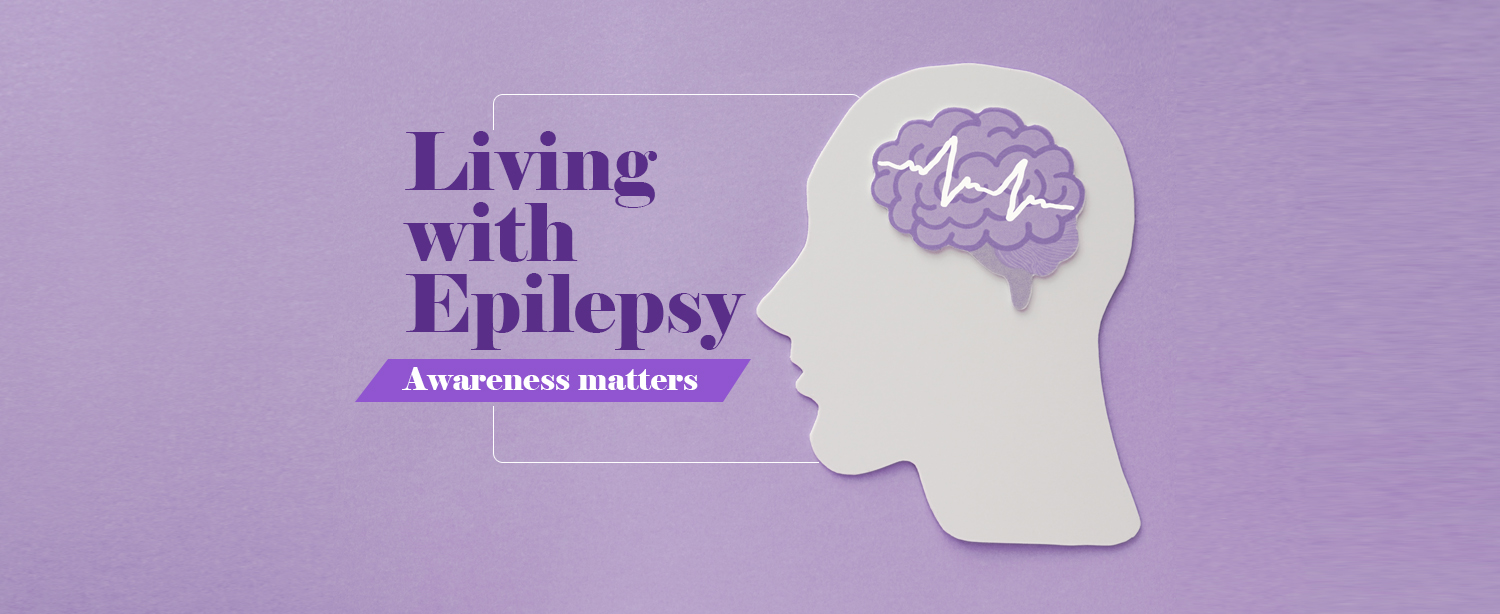In India, it is estimated that around 10 million people suffer from epilepsy, affecting roughly 1% of the population. It affects almost 50 million individuals worldwide, making it one of the most common neurological diseases. Epilepsy is a neurological illness in which the brain activity becomes aberrant, resulting in seizures or episodes of odd behaviour, feelings, and occasionally loss of consciousness. If diagnosed on time and treated correctly, up to 70% of persons with epilepsy could live seizure-free.
People with epilepsy often experience changes in their quality of life such as limited mobility, as well as the impact on learning, employment, relationships, and social interactions. In order to live a near normal life it is important to understand how to manage epilepsy better and seek specialist medical help. The challenges of living with epilepsy may be different for children, adolescents, and seniors than for adults and each age group needs a lot of support from their family, community and medical team. Together we can all make a difference to help people overcome the challenges of epilepsy, treat epilepsy and aim to live a seizure-free.
Living with Epilepsy
Living with epilepsy means learning about the condition, getting the right medical help, being prepared for seizures and making your environment as safe as possible. Here are a few tips to live better with epilepsy:
Work
Having epilepsy does not necessarily stop someone from working, however there will be certain limitations on basis of the nature of work. If you have seizures, you may not be able to do jobs that risk your safety or the safety of other people.
Sports and Leisure
Most people with epilepsy can take part in sports and other leisure activities if their seizures are well controlled. However, doctors recommend avoiding swimming, water sports, or taking part in adventure sports like paragliding, parasailing, rafting, etc
School and Education
Children with epilepsy can attend regular school and also participate in school activities. You must make the child’s school and teachers aware of their condition and keep them updated about medication and seizure first-aid. Some children may need extra support and therapy to fulfil their educational requirements.
Pregnancy
Pregnancy may change the effectiveness of your medication or how your seizures occur. Some women may find that their seizures are better controlled during pregnancy, or that you have more seizures than is usual for you. It is very important to work in co-ordination with your gynaecologist and neurologist to ensure that you receive continued epilepsy care during your pregnancy.
Children and Epilepsy
Children with an illness like epilepsy may suffer emotional problems, like low self-esteem or depression. This can also lead to feelings anger, embarrassment, frustration, etc. Here is how you can help your child:
- Make your child aware about the disease.
- Focus on things that they can do.
- Educate the family about the condition.
- Seek counselling if required.
- Explain seizure first-aid to everyone.
Home Safety
It is important to make minor changes in your house to make it safer and convenient for people who have seizures. Here are some simple changes recommended by doctors for epilepsy patients:
- Spot any potential dangers like sharp furniture corners, slippery floors, loose wires and take the required action.
- Avoid use of glass tables.
- Keep all walkways clear of obstacles.
- Install a shower chair, non-slip mats, and grab bars to make bathing a safe experience.
Trigger of Epilepsy Seizures
The seizure triggers of one person may be radically different from those of another. Keeping a seizure diary where you note down the details will help you in the long run to identify certain triggers and avoid them: Some of the common ones include:
- Missed medication
- Stress
- Lack of sleep
- Alcohol
- Menstruation
Seizure first-aid: Do’s and Don’ts
There are many types of seizures. Most seizures last for only a few minutes.
What to do when someone is having a seizure:
- Stay with the person until the seizure ends and he or she is fully awake.
- Comfort the person and speak calmly.
- Keep yourself and other people calm.
- Call for medical services if needed.
What not to do when someone is having a seizure:
- Do not hold the person down or try to restrain his or her movements.
- Do not put anything in the person’s mouth.
- Do not offer water or food until he or she is fully alert.
Epilepsy Treatment at Kokilaben Dhirubhai Ambani Hospital
Concerned about a loved one suffering from epilepsy? The Comprehensive Epilepsy Care Programme is organised to provide multi-faceted and advanced epilepsy care to adults and children with epilepsy. Our Centre for Neurosciences is the first centre in Western India to be equipped with high-end diagnostic facilities and provides medical as well as surgical treatment options for simple as well as complex epilepsy cases. Our highly experienced team of neurosurgeons have performed over 200 successful epilepsy surgeries. The team also conducts regular sessions to create awareness and remove fears about epilepsy in the community. Our Support Group for Epilepsy meets regularly with epilepsy patients and addresses common social, employment, as well as educational issues for patients. Please find below our website details for further information: https://www.kokilabenhospital.com/departments/centresofexcellence/centrefor_neurosciences/epilepsy.html


